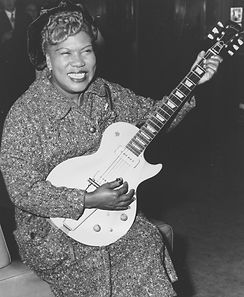Culture
FBA Culture Ignored at Essence Fest

Empty Caesar's Superdome during music performance at 2025 Essence Fest. Via Nola.com
Published July 16, 2025
Essence Festival, widely recognized as an event that pays homage to Foundational Black American culture and empowerment, is under fire for pushing FBA culture to the side in order to promote and celebrate African and Caribbean cultures.
Founded in 1995 as a platform to showcase Foundational Black American excellence in music and art, as well as dialogue on social issues affecting the community, Essence Fest has historically been a beacon of cultural pride and unity.
However, recent festival lineups and leadership decisions have sparked concerns that the festival is drifting away from its roots. Critics argue that Essence Fest is increasingly featuring artists, speakers, and sponsors that reflect Caribbean or pan-African identities—while neglecting the specific history and contributions of Foundational Black Americans who created the global culture the entire world emulates.
From fashion, to dance, to music, to slang, to swagger, to attitude, the entire world appropriates and imitates Foundational Black American cultural creations.
It is imperative that Foundational Black Americans protect their cultural creations and institutions from being colonized and erased from those who only view the culture as a business venture.
FBA culture has generated hundreds of billions of dollars both in the United States and in countries abroad that emulate the culture. There have been multiple attempts in recent years by outsiders to crowbar their way into the culture and rather than pay respect, falsely claim they created it to erase FBA's from the history books.
It may be time to either purchase Essence and bring it back under FBA ownership, or abandon supporting the publication altogether. If anything is certain, Foundational Black Americans can create something bigger and better.
Foundational Black Americans created Rock 'N' Roll
Published July 13, 2025
Rock 'n' roll, the rebellious soundtrack of American youth, was born from the deep, rhythmic soul of Foundational Black American men and women. Long before Elvis Presley was erroneously crowned the "King of Rock 'N' Roll," Foundational Black American artists had already shaped the sound that would electrify the world.
In the 1940s and early 1950s, musicians like Sister Rosetta Tharpe, Chuck Berry, Little Richard, Fats Domino, and Bo Diddley laid the foundation of Rock with explosive guitar riffs, energetic rhythms, and gospel-inspired vocals. Sister Rosetta, a gospel singer with a blistering electric guitar style, is widely considered the Godmother of Rock. Chuck Berry brought the swagger, storytelling, and guitar solos that became rock staples. Little Richard’s flamboyant energy and wild vocals redefined performance itself.
Despite creating the genre, as with most Foundational Black American creations, the genre was whitewashed as soon as Rock became commercialized and the industry began to promote white artists.
The music industry pushed white performers that imitated Foundational Black American artists—most famously Elvis Presley. Many Black musicians had their songs covered, often without permission or proper compensation. Radio stations labeled Black music as "race music," limiting its exposure to white audiences in an attempt to minimize its cultural impact.
The erasure wasn’t just economic—it was historical. Textbooks and documentaries often start the story of rock with white artists, while the true Foundational Black American pioneers are largely ignored. Only in recent years have institutions begun to recognize the foundational role of Foundational Black American artists in Rock N’ Rolls history.
Rock ‘N’ Roll is a Foundational Black American creation, just like Hip-Hop, Gospel, Jazz, Blues and Country—born out of struggle, faith, and rhythm. Foundational Black American musicians deserve the credit and honor they earned through innovation, talent, and cultural brilliance in the face of racism, systematic oppression and creative theft they experienced. The sound of Rock is a Foundational Black American one. And it always has been.





Sister Rosetta Tharpe
Chuck Berry
Little Richard
Fats Domino
Bo Diddley

